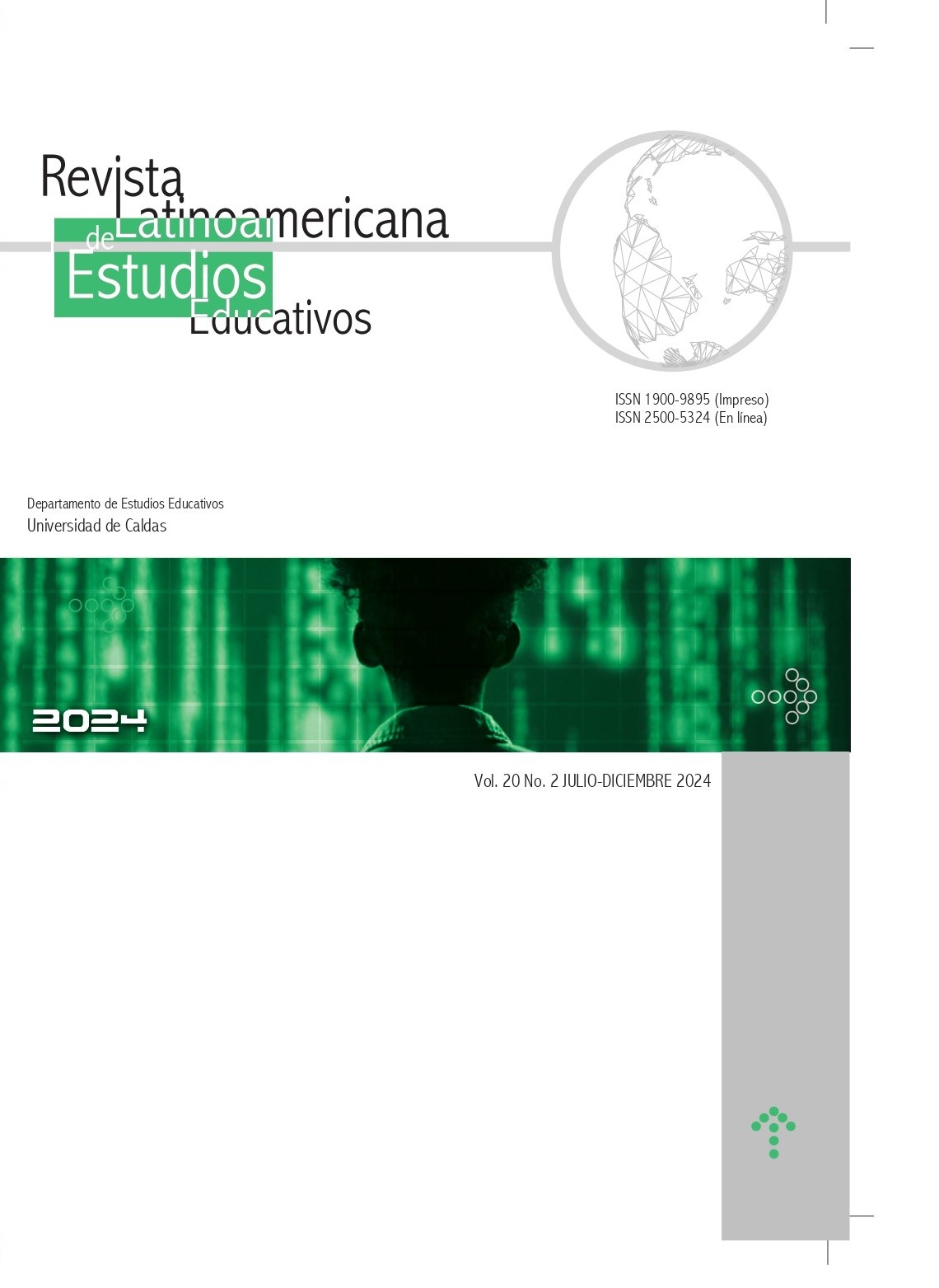Authors
Abstract
The aim of this article is to examine inequality in education on the basis of three fundamental axes: the right to equal access to education; the right to equal access to culture (to the common world); and the possibility of equal participation in public affairs. The text starts from the observation that neoliberalism is not only an economic rationality, but also a modality of normative reason, a type of guiding rationality that is transversal to various spheres. Methodologically, this paper is inscribed in a philosophy of education, and intends to make a theoretical contribution in three directions: first, a philosophical conceptualization of neoliberalism, in order to better understand its nature and its real impact on education; second, to deploy a critical analysis of the notion of meritocracy in terms of legitimizing discourse of various forms of inequality. Finally, it concludes with a series of notes on the educational challenge ahead of us in the face of neoliberal barbarism, which involves a double deployment: that of the entire social - and educational - reinterpretation in the reductive language of human capital, and that of the razing of the public, which encompasses the field of the human
experience of training.
References
Amigot Leache, P. y Martínez Sordoni, L. (2013). Gubernamentalidad neoliberal, subjetividad y transformación de la universidad. La evaluación del profesorado como técnica de normalización. Athenea Digital, 13(1), 99-120. https://raco.cat/index.php/Athenea/article/view/291637
Arendt, H. (1961). Between Past and Future. The Viking Press.
Arendt, H. (2005). La condición humana. Paidós.
Ávila Rojas, O. (2022). Poder y sanitocracia en América Latina. Reconfiguración política en la pandemia del 2020. El Ágora USB, 21(2), 610-628. https://doi.org/10.21500/16578031.5878
Ball, S.J. y Youdell, D. (2009) La privatización encubierta en la educación pública. Utopías, nuestra bandera: revista de debate político, 220, 54-92.
Bárcena, F. (2006). Hannah Arendt: una filosofía de la natalidad. Herder.
Becker, G. (1964). Human Capital: A Theoretical and Empirical Analysis, with Special Reference to Education. National Bureau of Economic Research.
Biesta, G. (2006). What's Tthe Ppoint of Llifelong Llearning if Llifelong Llearning has no Ppoint? On Tthe Ddemocratic Ddeficit of Ppolicies for Llifelong Llearning. European Eeducational Rresearch Jjournal, 53(3-4), 169-180. https://doi.org/10.2304/eerj.2006.5.3.169
Biesta, G. (2009). Good Eeducation in an Aage of Mmeasurement: On the Nneed to Rreconnect with the Qquestion of Ppurpose in Eeducation. Educational Assessment, Evaluation and Accountability (Fformerly: Journal of Personnel Evaluation in Education), 21(1), 33-46. https://doi.org/10.1007/s11092-008-9064-9
Brown, W. (2015). Undoing the Demos: Neoliberalism’s Stealth Revolution. Zone Books.
Çalışkan, K. y Callon, M. (2009). Economization, Part 1: Shifting Attention from the Economy towards Processes of Economization. Economy and society, 38(3), 369-398.
Castoriadis, C. (1996). La democracia como procedimiento y como régimen. Jueces para la democracia, (26), 50-59.
Derrida, J. (1995). Dar (el) tiempo. Paidós.
Dewey, J. (1916). Democracy and Education. MacMillan Company.
Dewey, J. (1927). The Public and Its Problems. Alan Swallow.
Escalante Gonzalbo, F. (2016). Historia mínima del neoliberalismo. Turner.
Foucault, M. (2009). Nacimiento de la biopolítica. Akal.
García Lombardía, P. (2014). Armonizar educación con empleo en España. Un reto a 5 años [Archivo PDF]. https://media.iese.edu/research/pdfs/ST-0359.pdf
Han, B. C. (2014). Psicopolítica: neoliberalismo y nuevas técnicas de poder. Herder.
Harvey, D. (2005). A Brief History of Neoliberalism. Oxford.
Hayek, F. A. (1966). Los principios de un orden social liberal [Archivo PDF]. . Trabajo presentado en el encuentro de Tokio de la Sociedad Mont Pelèrin. https://www.cepchile.cl/cep/site/docs/20160303/20160303183426/rev06_hayek.pdf
Hayek, F. A. (1996). Individualism and Economic Order. University of Chicago Press.
Hayek, F. A. (2008). Camino de servidumbre (Obras Completas. Vol. II). Unión Editorial.
Holloway, J. (2016). In, Against, and Beyond Capitalism: The San Francisco Lectures. Pm Press/Kairos.
Jiménez Perona, A. (1993). Entre el liberalismo y la socialdemocracia. Popper y la “sociedad abierta”. Anthropos.
Larrosa, J. (2020). Impedir que el mundo se deshaga. En J. Larrosa, J. K. Rechia y C. K.Cubas (Eds.), Elogio del profesor (pp.78-117). Miño y Dávila Editores.
Larrosa, J. (2021). La escuela y la mímesis atencional: una hipótesis de trabajo a partir algunos textos de Simone Weil. Xiphias Gladius: Revista Interdisciplinar De Teoría Miméticaca. Xiphias Gladius, (4), 67-–76. https://portalderevistas.ufv.es/index.php/xgladius/article/view/676
Laval, C. y Dardot, P. (2013). La nueva razón del mundo. Gedisa.
López Álvarez, P. (2014). Pensar la crisis. Cuaderno de Materiales, 26, 5-22.
López, M. V. (2020). Del ocio al estudio: sobre el cultivo y la transmisión de un arte. En F. Bárcena, M. V. López y J. Larrosa (Coords.), Elogio del estudio (pp. 119-143). Miño y Dávila Editores.
Pieper, J. (2017). El ocio y la vida intelectual. Rialp.
Posca Cohen, M. (2023). De la gobernanza numérica a la gobernanza digital: transformaciones del homo academicus contemporáneo. Crónica: Revista Científico Profesional de la Pedagogía y Psicopedagogía, (8), 39-52.
Rancière, J. (1988). École, production et egalité. Horlieu éditions.
Schultz, T. (1960). Capital Formation by Education. Journal of Political Economy, 68(6), 571-583.
Schultz, T. (1968). Valor económico de la educación. UTEHA.
Schumpeter, J. A. (2003). Capitalism, Socialism and Democracy. Routledge.
Tatián, D. (2020). El estudio como cuidado del mundo. En F. Bárcena, M. V. López y J.Larrosa (Coords.), Elogio del estudio (pp. 99-118.). Miño y Dávila Editores.
Tocqueville, A. (2017). La democracia en América (Vol. I). Alianza editorial.
Valle, J. M. (2015). Las políticas educativas en tiempos de globalización: la educación supranacional. Bordón. Revista de Pedagogía, 67(1), 11-21. https://doi.org/10.13042/Bordon.2015.67101
Valle López, J. M. y García, F. (2021). Educación supranacional y educación superior: claves de transformación global para sociedades complejas. Revista Española de Educación Comparada, (37), 10-25. https://revistas.uned.es/index.php/REEC/article/view/29228/22575
Wacquant, L. (2010). Castigar a los pobres. El gobierno neoliberal de la inseguridad social. Gedisa.
Wee, C. y Monarca, H. (2019). Educación superior en contextos de cuasi mercados. Educación XX1, 22(1). https://doi.org/10.5944/educxx1.20047
Weil, S. (1996). Echar raíces. Trotta.

 PDF (Español)
PDF (Español)
 FLIP
FLIP
























